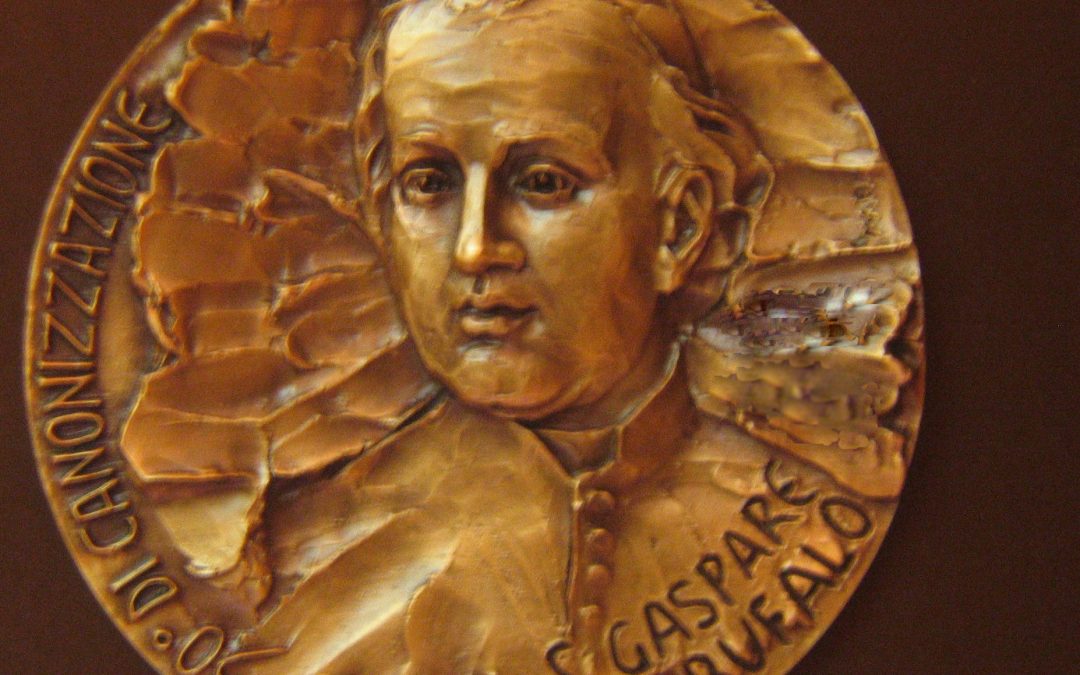By Brother Matthew Schaefer, C.PP.S.
Spoiler Alert! In today’s Gospel, Luke tips his hand. He points us toward the moral of the story in the very first sentence—before the parable even begins. We know that someone in the parable is going to be smug and judgmental. We disapprove of this person before we even know who it is. And because it’s a parable we can probably expect a contrasting positive person.
The parable introduces two figures, a Pharisee and a tax collector, two types who receive a lot of scorn. At the time, the tax collector would have been the person who was disliked by the people. Tax collectors had to pay a certain amount to the Roman authorities; however, if they collected more money, they could keep the excess for themselves. Thus, there was a temptation for them to take advantage of their fellow Jews.
On the other hand, the Pharisees were held in high esteem by the Jews. They interpreted and enforced the many Jewish laws. By doing this, the Pharisees allowed family and home life to be sanctified. The temple wasn’t the only place for a person to display holiness. Jewish spiritual life was made richer because of the Pharisees.
In the parable, the Pharisee stands in the temple area and thanks God that he is not sinful. He pats himself on the back for his good acts. The tax collector stands outside the temple area and asks God for mercy. In the end Jesus tells us that the tax collector is justified and the Pharisee is not.
Let’s look closer at the two figures. The Pharisee is a holy man. He is faithful and observant. His actions are good and there is nothing to suggest that he is a hypocrite. We may have taken his prayer on face value and deemed it good, if the first sentence of the reading had not introduced a bias against him. As for the tax collector, he admits that he is a sinner and asks God for mercy—which is good. But there is no indication that he is going to change his ways and stop sinning.
So what is it that makes the sinner justified and the holy man not justified? It is more than their actions and words, it is their attitude toward God. The Pharisee doesn’t ask for God’s grace, he thinks he is already righteous. The tax collector knows that he needs God’s grace and is faithful enough to ask for it. One man builds up his own image before God, as if God has to be told this. The other man says that he is a sinner, not because God needs to be told this—but because he needs to admit it to himself and to God. The tax collector demonstrates true humility. He doesn’t demean himself or think that he is undeserving; he stands before God honestly and genuinely.
I have a handwritten sign at home that reads, I am as God made me, no more and no less. I saw this phrase in a book of spiritual reflections many years ago. It was one of those times when a line caught my attention, and I sensed it was significant. I wrote it on an index card and proceeded to forget it. A couple of years later, during a time when I was beating myself up for my failures and lack of faithfulness, I came across this card again. Ever since then it has been displayed where I see it at the beginning and the end of every day. I like to think that this keeps me from being boastful and judgmental like the Pharisee and helps me to be honest before God like the tax collector.
Our occasional self-delusion about how good and faithful we are does not mean we are above needing God’s guidance. And our sinfulness doesn’t make us undeserving of God’s love and mercy. May we always be satisfied with being the people God made us to be, no more and no less.
![]()

Brother Matthew Schaefer, C.PP.S., is in ministry at the Downtown Dayton Parishes, which include Emmanuel, Holy Trinity and St. Joseph.

